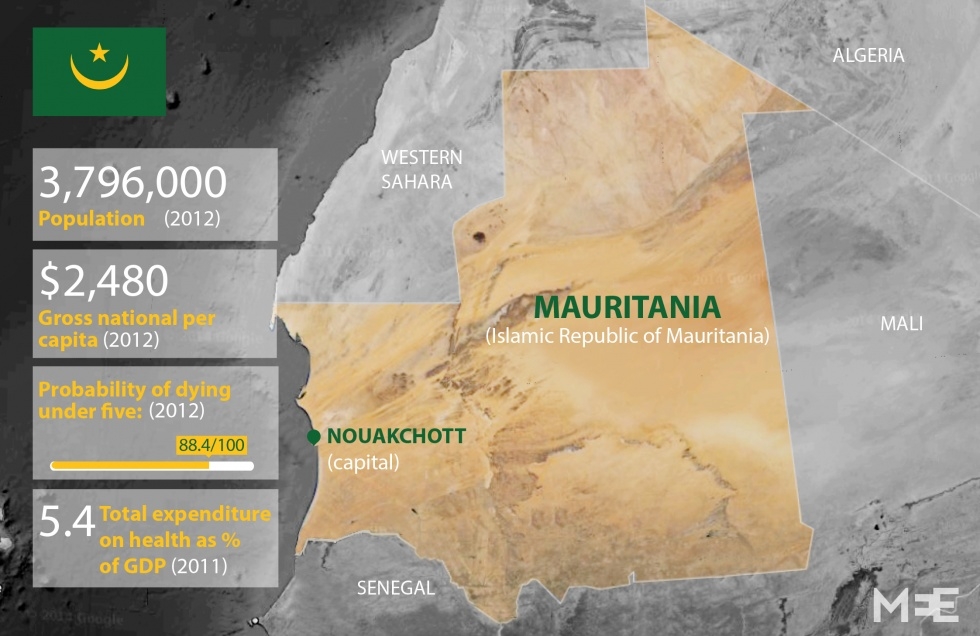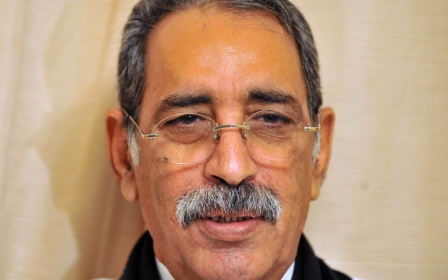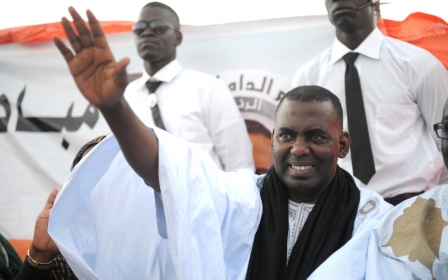Mauritania's highest court confirms win for Abdel Aziz

The 57-year-old Abdel Aziz had won "an absolute majority of votes cast" in the 21 June election, said the chairman of the constitutional council, Sgheyir Ould M'barek, during an official ceremony.
Final results released by the council gave Abdel Aziz 81.94 percent of the vote, slightly higher than the provisional figure of 81.89 percent given by the Independent National Electoral Commission (INEC) a week ago.
Abdel Aziz triumphed over anti-slavery candidate Biram Ould Dah Ould Abeid, who received 8.72 percent of the vote.
Ould Abeid challenged the results, but his request was dismissed by the council.
Some analysts believe Dah Abeid - who is known by the public simply as Biram and won a prestigious UN Human Rights Award last year - was capable of winning the election had more Mauritanians been registered to vote.
"If all Harratin and blacks were registered on the voters roll, which they are not, and if Mauritanian elections were 100 percent free and fair, which they are not, and if all Harratin-blacks voted on racist-ethnic lines, which is conceivable, then Biram Dah Abeid would be President," said Jeremy Keenan, a Professorial Research Associate at the School of Oriental and Africa Studies.
None of the other three candidates in the race polled above five percent.
Boidiel Ould Houmeid, the head of the moderate El-Wiam party, received 4.41 percent of the vote, while Ibrahima Moctar Sarr, the only candidate from the black African south, received 4.43 percent.
The only female candidate in the race, Lalla Mariem Mint Moulaye Idriss, received 0.48 percent.
Calls from opposition groups for a boycott of the election appeared to have a minor impact, with the council putting turnout at 56.55 percent, compared to 64 percent in 2009.
The National Forum for Democracy and Unity - an opposition coalition of 11 parties including a moderate Islamist movement - rallied to denounce Abdel Aziz's "dictatorial power" and were counting on a high abstention rate.
Abdel Aziz, a former general, seized power in the northwest African nation in an August 2008 coup and won disputed elections the following year. He campaigned strongly on his success in fighting armed groups linked to al-Qaeda at home and in neighbouring Sahel nations.
President vows to work for national unity
Following his victory, Abdel Aziz pledged "to be the president of all Mauritanians and to guarantee the rights of all citizens," according to a text read out by his campaign director Sidi Ould Salem on Monday.
He will use his new five-year mandate to "pursue a policy of strengthening national unity, the independence of the judiciary, the fight against waste and social inequality as well as the reduction of poverty through a better redistribution of the nation's wealth," the statement said.
Abdel Aziz said the 56 percent turnout in the elections showed opposition claims that the population would reject the process were false, and that "a large part of the Mauritanian people (are committed to) pursuing... the process of consolidating democracy and good governance."
Mauritania, nearly as big as Egypt, is a poor country but saw six percent economic growth last year. It has produced oil since 2006 and is rich in iron ore as well as fish caught off its Atlantic coastline.
Middle East Eye propose une couverture et une analyse indépendantes et incomparables du Moyen-Orient, de l’Afrique du Nord et d’autres régions du monde. Pour en savoir plus sur la reprise de ce contenu et les frais qui s’appliquent, veuillez remplir ce formulaire [en anglais]. Pour en savoir plus sur MEE, cliquez ici [en anglais].




